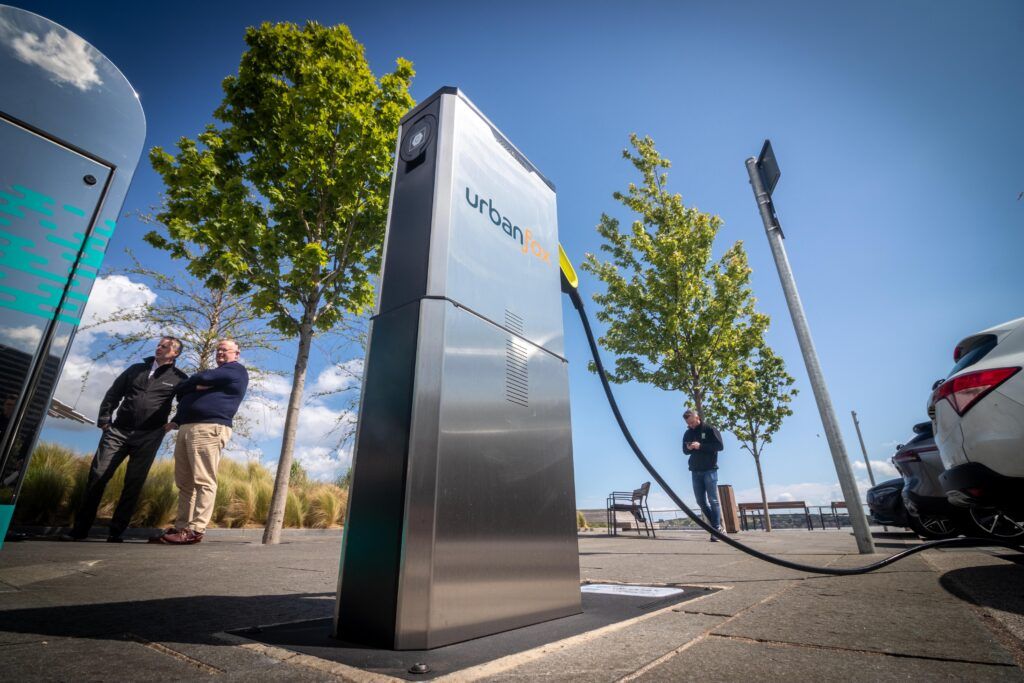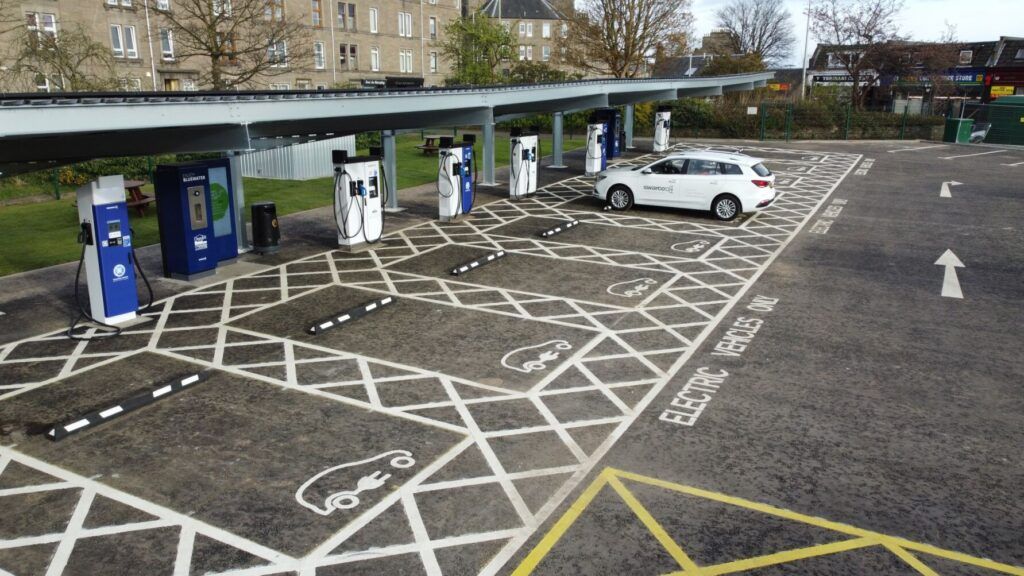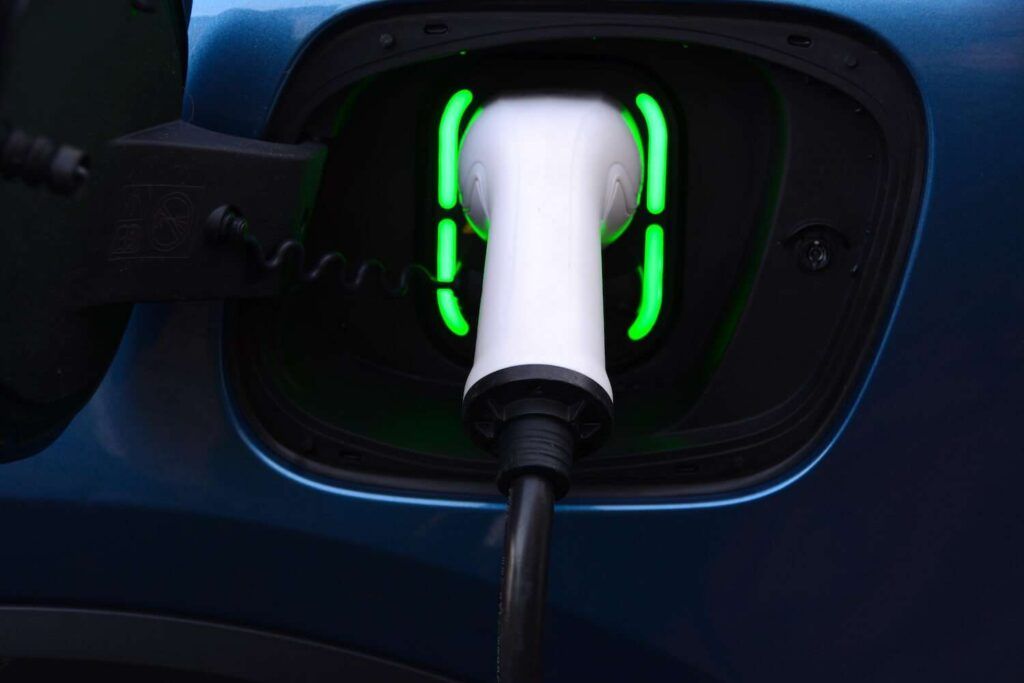Fraser Crichton, Corporate Fleet Manager at Dundee City Council, explains how the local authority is using the accessibility standard to ensure disabled drivers are not overlooked in the electric vehicle (EV) revolution.
The accessibility of electric vehicle infrastructure is more important than ever. A recent study from Vauxhall has unveiled that, despite the UK’s growing number of EV charge points, just 2% of on-street chargers meet accessibility guidelines.
The study reveals that disabled drivers are being significantly overlooked in the race to net zero. Just 0.5% of the chargers sampled were in disabled bays and only 1.2% met the British Standards Institution’s (BSI) standards on accessible charging. With the number of disabled drivers set to increase to 2.7 million by 2035, it is clear that significant change needs to be made across the EV sector.
The BSI PAS 1899:2022 standard was created by the British Standards Institution, co-sponsored by Motability the national disability charity and the UK Government’s Office for Zero Emissions Vehicles (OZEV). It sets out to build an inclusive EV charging infrastructure in the UK, including public charging point specifications such as location, placement and design.
At Dundee Council this standard is something we have used to influence our past, present and future EV infrastructure.
Europe’s first fully retractable on-street chargers
Earlier this year, Urban Fox unveiled their UE One, Europe’s first fully retractable electric vehicle (EV) chargers in Dundee.
Across nine sites in the city, eighteen 7kW Mk5 UEone chargers are now ready for use. They were extensively developed across seven years with a 2.5 year trial period to make certain they were functional for accessibility needs. The chargers use an app to raise, power and monitor the EV charging activity.
The main USP of these chargers is their accessibility. The UEone chargers rise from the ground to a user-friendly height when needed, and retract flat and flush underground when not in use. This design ensures pavements remain clear and accessible for pedestrians, reducing trip hazards. Other ease-of-use elements to benefit disabled motorists include dual sockets that are 80cm above ground level when the UEone is raised, as well as a one-handed cable insertion mechanism and auto retract feature.
The new UEone chargers are part of Urban Fox’s mission to make EV charging infrastructure accessible to all. Their installation in Dundee is a significant step towards the EV accessibility of Dundee and sets it apart from any other city in the UK.

Enhancing accessibility at the Clepington Road charging oasis
The development of our fourth charging hub on Clepington Road (pictured below), which launched in April 2023, was heavily influenced by concerns around accessibility. Our goal was to integrate accessibility seamlessly into the design, creating a model that could be easily replicated.
Starting in 2019, the hub’s design was a collaborative effort involving Urban Foresight, disability charities, manufacturers, and, crucially, disabled drivers. Accessibility was a priority at every stage, and BSI PAS 1899:2022 played a crucial role in the hub’s design.
Following these guidelines, we implemented features to allow easy access and wheelchair manoeuvrability including generously sized bays surrounded by hatching and unobstructed pathways. Visibility was also considered through a number of colour-coded features like cables and wheel stops. Longer cables, cable retention systems, strong lighting and shelter were implemented to increase safety levels for vulnerable users.

Bell Street: Dundee’s next accessible EV project
Dundee’s next accessible EV project is already underway. The Bell Street multi-storey car park is set to be transformed into a pioneering green transport hub. Its aim – to change people’s travel habits for the future.
In March, extensive renovation work began to complete the multi-modal, sustainable transport hub. It will have 350 electric vehicle charging points, care-share spaces, and an e-bike hire service. This is all powered by a significant solar display and battery storage system, similar to the technology used at Clepington Road. Its aim is to create a network of walking and cycling links to the city centre, encouraging greener travel for everyone, from residents to visitors.
To ensure that the new car park is as accessible as possible, the number of parking spaces will be significantly reduced to allow the bays to be much wider in accordance with the BSI PAS 1899:2022 standard. This will improve accessibility for both EV and non-EV drivers. It will take around two years to complete, but serves as evidence of Dundee’s commitment to accessibility and sustainability for the future. Despite the current shortcomings in the accessibility of EV infrastructure across the UK, Dundee sets a precedent with its innovative and accessible solutions.
As in previous years, Transport + Energy is offering a number of fully funded places to qualifying representatives from local authorities who are in a role which is focused on the decarbonisation of transport, including energy, infrastructure, planning and highways at its upcoming Transport + Energy Forum. To apply, click on the ‘Book your place’ button, go to local authority ticket, select number of tickets, complete your details and check out.











